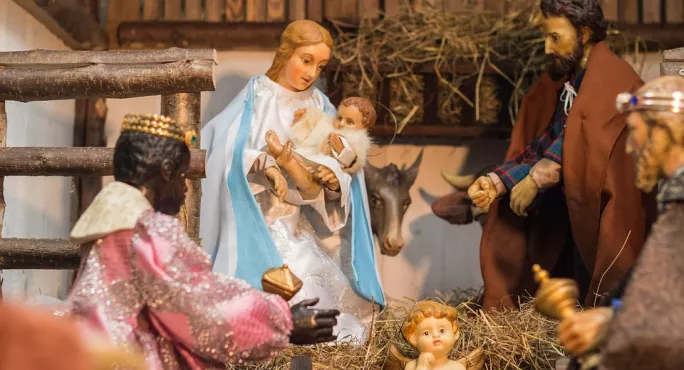Near the conclusion of John Masefield’s 1935 children’s novel The Box of Delights, we hear a vivid description of a carol service with “all voices lifted aloft in Come, All Ye Faithful… All there sang as they had never sung: the singing shook the whole building.” This description will be well recognised by any teacher who’s overseen the Christmas assembly or carol concert and heard that particular hymn sung several hundred decibels beyond mere exultation.
It’s a tradition in the best sense; marking the end of the longest and toughest term that, in colleges, has stretched from the thrilling stampede of enrolment back in August to the last chocolate-and-Kahoot-fuelled lessons pretty much on Christmas Eve. Carol services are one of the most magical privileges of teaching and I am disappointed and disoriented this year after missing my own college’s.
When at school myself, I managed to blag my way into reading for the carol service most years. At a state school with pretensions, that meant a couple of days out of class, rehearsing readings down at the church and hanging out with a group of older and, as I thought at the time, cooler kids.
Christmas services are memorably special
The nights of the Christmas services were memorably special: wearing some extra layers against the sharp chill of the church, venturing out into the car park, where there would invariably be some teen drama unfolding. The peace and communion of the event allowing a unique opportunity to speak to our teacher nemeses as real-life human beings over a levelling hot chocolate.
The beauty of carol services is the coming together of the school or college community for a purpose that has nothing to do with assessment or statutory duties. It can be a spiritual experience shared meaningfully beyond the declining Sunday congregations, or it can be a joyfully secular indulgence in a tradition which has lasted for a thousand years.
Regardless of belief, the ritual can’t help but develop empathy in teachers as we see our students in roles we once filled. The evening is a continual parade of ghosts of Christmas past: having stood there myself, I’m fascinated to hear different emphasis on Caesar Augustus’s decree.
“There went out a decree from Caesar Augustus that all the world should be taxed.” Fair’s fair.
“There went out a decree from Caesar Augustus that all the world should be taxed.” Subtext: it was logistically problematic.
“There went out a decree from Caesar Augustus that all the wooorrld should be taxed.” Mwahahahaha.
‘Oh come let us adore him’
I love it when the obligatory recorder group wheezes through One Thousand Christmas Lights, reminding me of a cassette recording of me playing the same that I gifted to my grandad 30 years ago. I wonder what happened to that cassette tape.
And of course I almost can’t help laughing at the exaggerated hush of the first “Oh come let us adore him”, as I anticipate every student readying themselves to roar out the third.
I missed the service this year because I believed I was too busy, I felt unwell, I needed to get home for the dog, I had another commitment, and a hundred other reasons. None prevents me from feeling a little sad with myself now. The villains in The Box of Delights do all in their power to prevent Tatchester Cathedral’s thousandth service, but apathy and excuses would have served just as well.
At the end of the novel, John Masefield commits the worst GCSE English creative-writing sin of all, and has the hero Kay Harker wake up from a dream. After all his adventures and the Come all Ye Faithful climax, he’s back at the start, arriving home for the holidays. As a teacher, I see it as a perfect ending, representing the perpetual and joyous cycle that we exist in. The cycle will bring along another carol service soon enough, and another after that, and I hope that one day my students will look back just as fondly as I do.
Andrew Otty leads 16-19 English in an FE college. He is an ambassador for education charity Shine




